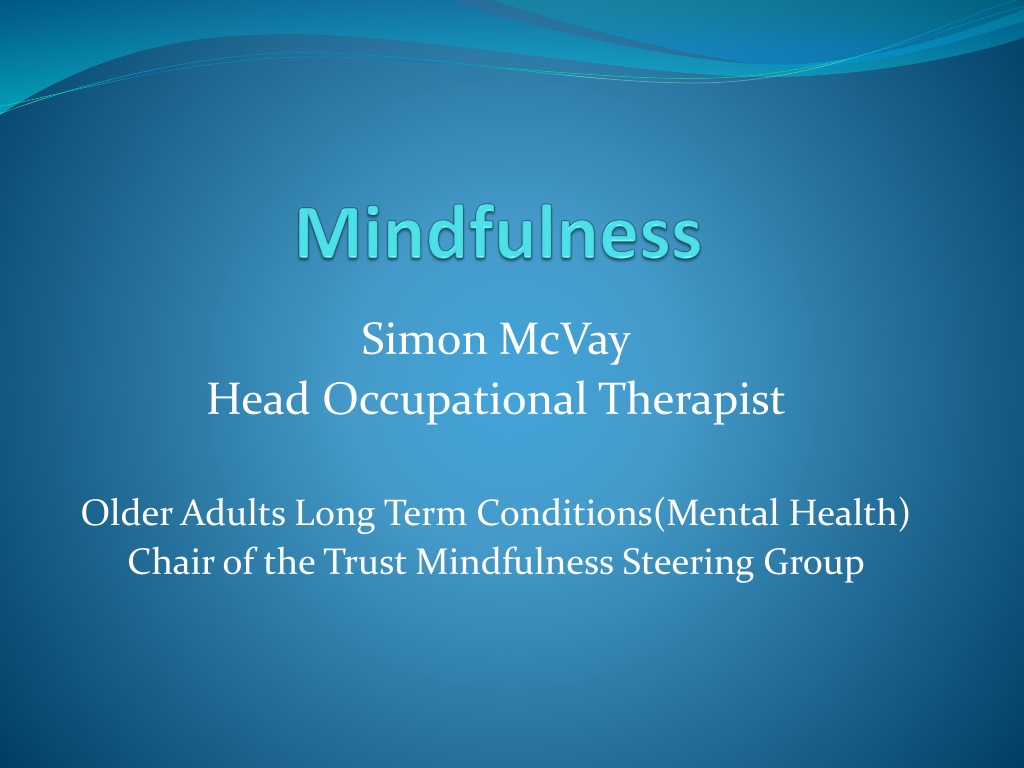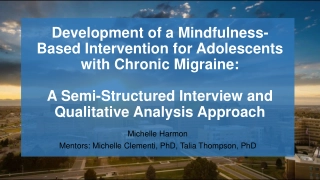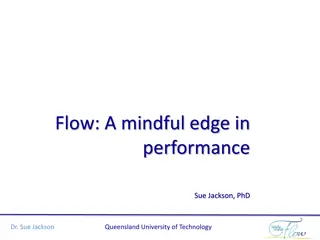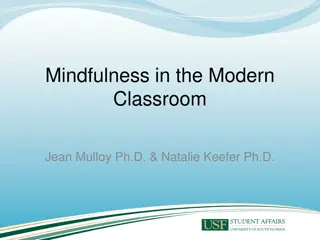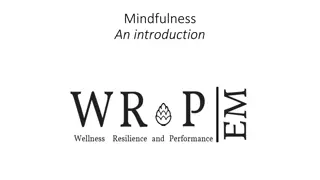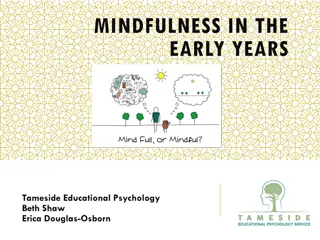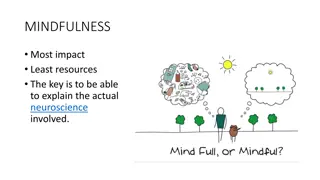Understanding the Benefits of Mindfulness for Psychological Health
Research led by Simon McVay, Head Occupational Therapist, highlights the positive impact of mindfulness on psychological health, reducing depressive symptoms, anxiety, enhancing emotional regulation, and supporting self-management of long-term conditions. Mindfulness fosters awareness, empathy, mental focus, and clarity while combatting ruminating and mind wandering, ultimately promoting a relaxed alertness and openness to experience.
Download Presentation

Please find below an Image/Link to download the presentation.
The content on the website is provided AS IS for your information and personal use only. It may not be sold, licensed, or shared on other websites without obtaining consent from the author. Download presentation by click this link. If you encounter any issues during the download, it is possible that the publisher has removed the file from their server.
E N D
Presentation Transcript
Simon McVay Head Occupational Therapist Older Adults Long Term Conditions(Mental Health) Chair of the Trust Mindfulness Steering Group
Research consistently shows a positive relationship between mindfulness and psychological health. Tomlinson ER; et al. (2018). "Dispositional mindfulness and psychological health: a systematic review". Mindfulness. 9 (1): 23 43.
Mindfulness reduces depressive symptoms and anxiety enhances emotional regulation helps with pain management prevents depressive relapse increases resilience supports self management of long term conditions
Why do we need mindfulness? we spend a lot of time thinking about what is not going on around us often this thinking is not under our control this is called ruminating or mind wandering
How much time does our mind spend wandering like this?
47 % A quarter million responses from 5000 people. Mind wandering is a cause of unhappiness. Killingsworth, M. A., & Gilbert, D. T. (2010). A wandering mind is an unhappy mind. Science, 330(6006), 932-932.
Mindfulness is not emptying the mind or making it blank trying to stop thoughts
Mindfulness is knowing when our mind has wandered knowing what we were thinking being able to disengage our attention from thinking choosing what we give our attention to
Mindfulness is relaxed alertness being fully aware, alert and attentive an openness to experience
Benefits of mindfulness enhances awareness of thoughts, feelings, body sensations, and our surroundings increases our capacity for empathy develops greater mental focus and clarity
Benefits of mindfulness responding to difficulty more effectively without judgement and self-criticism recognizing and changing unhelpful habits strengthening the immune system through reducing the stress hormone cortisol
Benefits of mindfulness being in control of our attention means being in control of how we spend our time and energy mindfulness is a skill that we can develop with 5 or 10 minutes of regular daily practice brain scans show positive changes after just 3 months of a 5- 10 minute daily practice.
